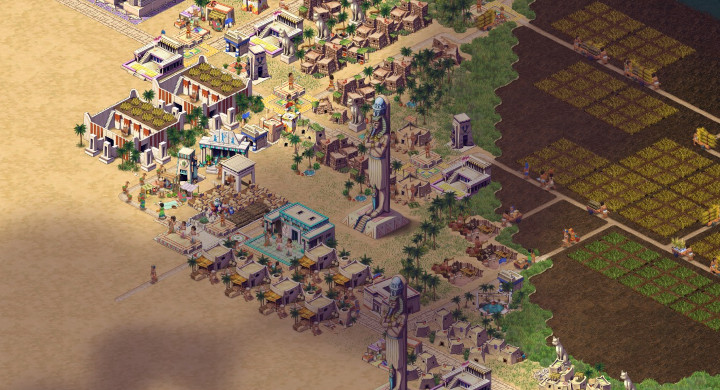
I didn’t play the original Pharaoh when it came out back in 1999, and I didn’t even play it when the Cleopatra expansion released in 2000. But ever since I started playing the remake by Triskell Interactive and Dotemu — titled Pharaoh: A New Era — my friends have been regaling me with tales of Egyptian city-building from their childhoods. Apparently, this game was kind of a hit back in the day.
Because I never played the original, I can’t really compare the remake against it. What I can say, though, is that for a newcomer to this majestic city-builder, Pharaoh: A New Era is hyper-addictive and really well-conceived. It’s also incredibly deep — like, Mariana Trench deep.
Now, there are certain types of games where complexity doesn’t really do anything to make the experience better. 2D platformers, for example, are at their best when they’re super simple. However, city-builders are definitely designed to house rich, deep systems. And holy smokes, is Pharaoh drenched in systems.
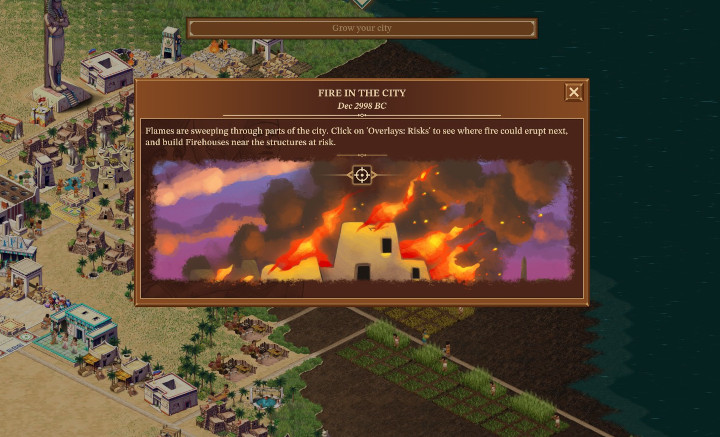
This is a game where you have to carefully balance the egos of various gods or you’ll find yourself getting smote at every turn. If one deity starts to feel neglected, your buildings will go up in smoke, or your storage yards will crumble, or your citizens will start dying off of mysterious plagues.
On top of that, you have to manage the economy. Sometimes that’s easy — simply mine some gold — but other times that means balancing taxes against people who don’t want to be taxed, as well as thieves who see tax collectors as an opportunity to make off with some stolen loot.
Additionally, you’re trying to thrive within the rhythm of the Nile, farming when the river is high but taking shelter when it’s completely flooded.
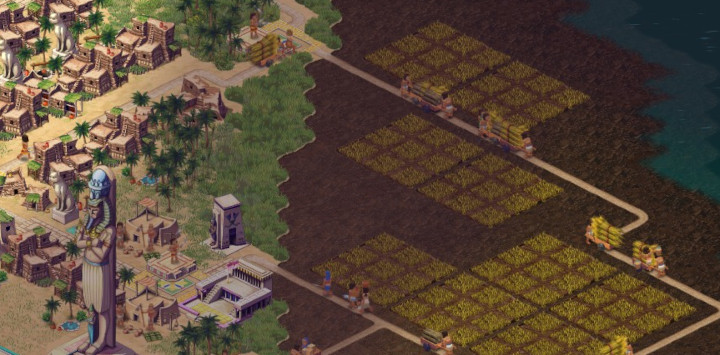
All of that is on top of the basic needs management of your civilization — things like making sure your buildings aren’t matchsticks waiting to be lit, or that your citizens have access to entertainment and clean water. And if you want to please the wealthier classes, you need to make sure your various industries — like pottery huts and breweries — are booming.
And then, of course, there’s the act of setting up trade routes. This is where Pharaoh: A New Era is going to really hook chronic micromanagers. You’ve got “runners,” who will follow the roads that you build (though you can block them in via roadblocks) and carry goods from place to place. You can set up storage facilities to only collect and distribute specific resources to make travel as smooth as possible, while also making sure enough goods are being produced and moved in order to keep stock levels equalized. If you don’t mine enough clay, for example, your pottery huts will stop producing, but if you mine too much, your stockyards will fill up and your trade routes will jam up.
So Pharaoh is very much about balance. I tend to struggle with it at times because my instincts are to overproduce so I can be prepared for any eventuality, but the game actually punishes me for playing this way. Either I’m spending too much money, producing too much of a particular good, favoring one god way too much, or just dropping some other ball that I forgot to pay attention to while juggling a half dozen others.
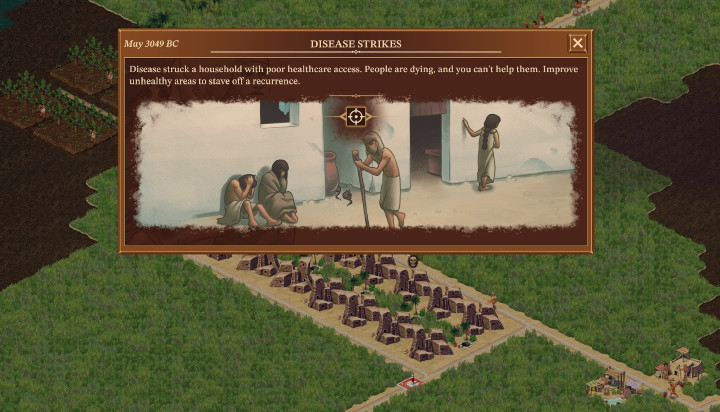
There’s a lot to know here, and the game isn’t always the best at communicating things. The campaign is enormous and serves as a pretty decent tutorial to help you get your feet wet, but it does expect you to keep up with an overwhelming amount of information if you want to continue to move forward. In fact, at one point during the review period, there was a game update that wiped my save file. I was given instructions for how to recover that file, so it wasn’t a big deal, but I took this as an opportunity to simply start over and play through the opening hours again, which helped me to better understand the basics before getting submerged in the depth of its systems once again.
Because the original Pharaoh came out so long ago, and because it’s such a beloved classic, there are plenty of tutorials online that will talk you through ideal city layouts and explain how to balance your economy to the point of perfection. You can also simply turn down the difficulty level if you find yourself feeling helplessly bogged down. But without external resources, I think there are a lot of folks who are going to feel a little bit lost trying to navigate this one.
That’s not a bad thing. In fact, that’s the reason so many people have fallen in love with this game over the years. It’s also the reason people still play it to this day, which created the need for the modern remake I’ve been playing.
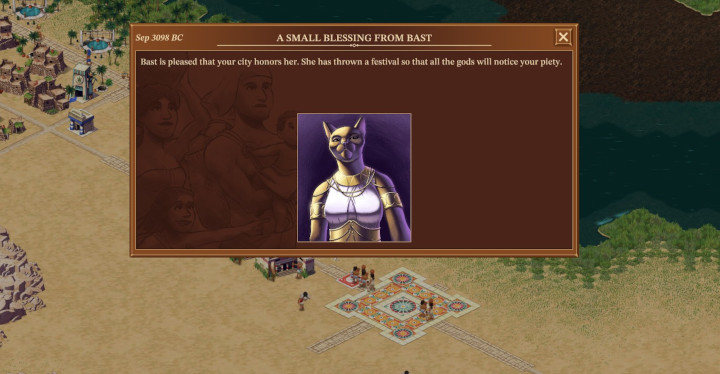
So if you’re thinking about playing Pharaoh: A New Era without having played the original, I just have to let you know that you’re going to find an incredibly steep learning curve. Yes, if you conquer that mountain, you’re going to be rewarded with an incredibly rich gaming experience. But if you’d rather just shut off your brain and enjoy something simple, you might want to turn down the difficulty from the very beginning.
Pharaoh: A New Era is not for the feint of heart; this is a robust, deep, complex game that’s built around a series of interlocking systems that need to be picked apart and studied if you want to make any sense of them. Systems addicts are going to find a lot to obsess over here, while casual players might feel like they’ve jumped into the deep end of the pool by mistake.
So if you’re a newcomer to this hyper-addictive city-building classic, I can only say, “Good luck, and may the gods of Egypt heap mercy upon your poor, wretched soul.”
Disclaimer: I was given a review code for Pharaoh: A New Era on Steam, but the opinions expressed in this article are my own.